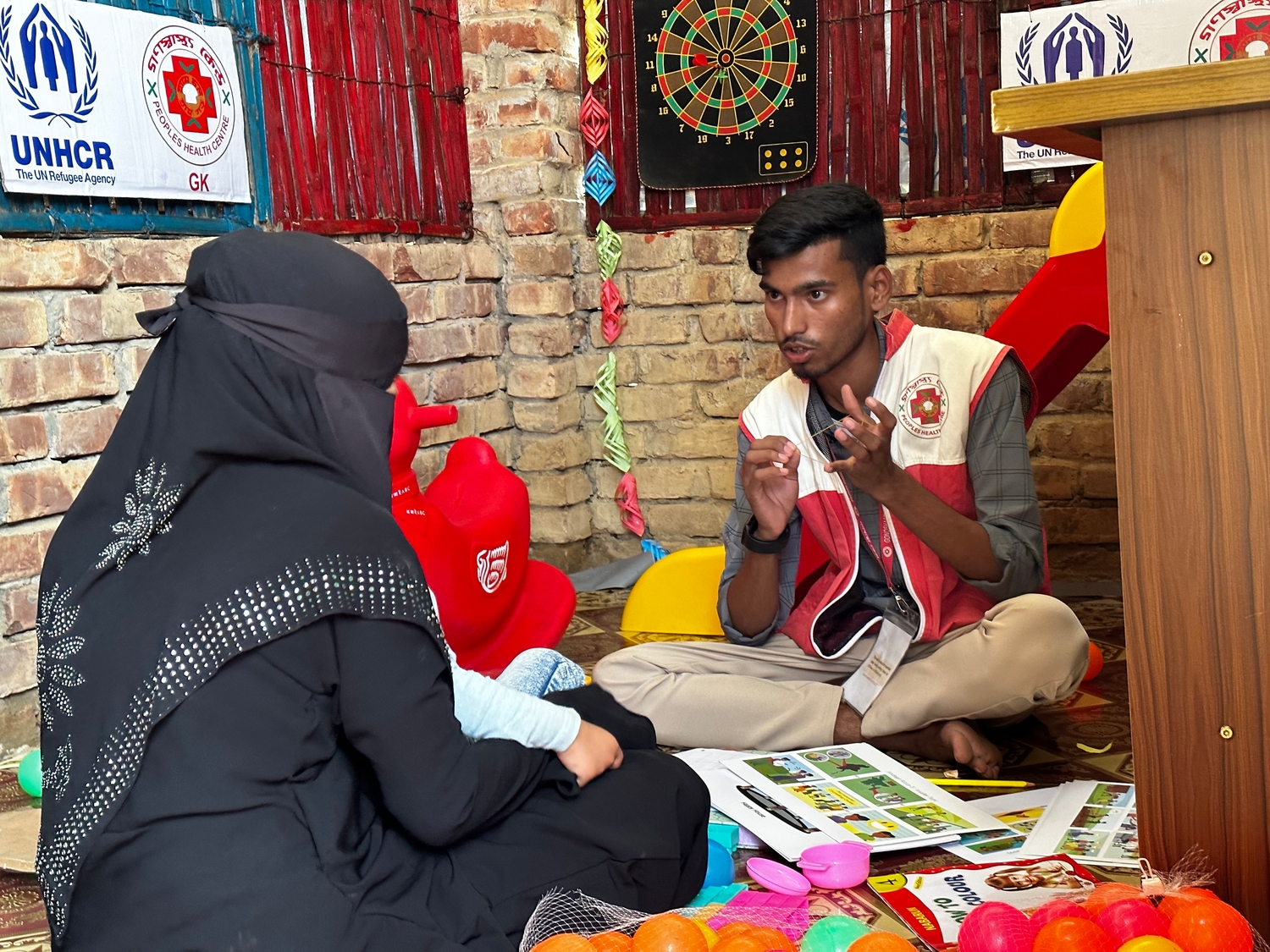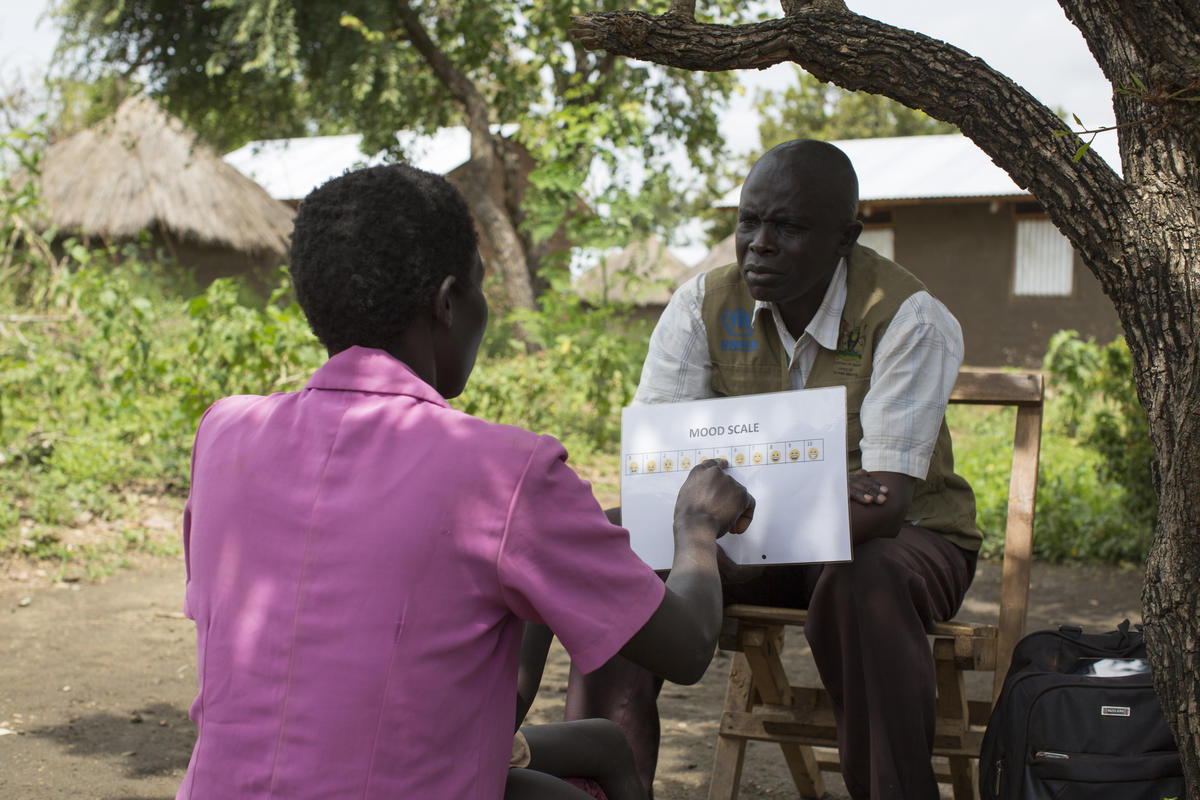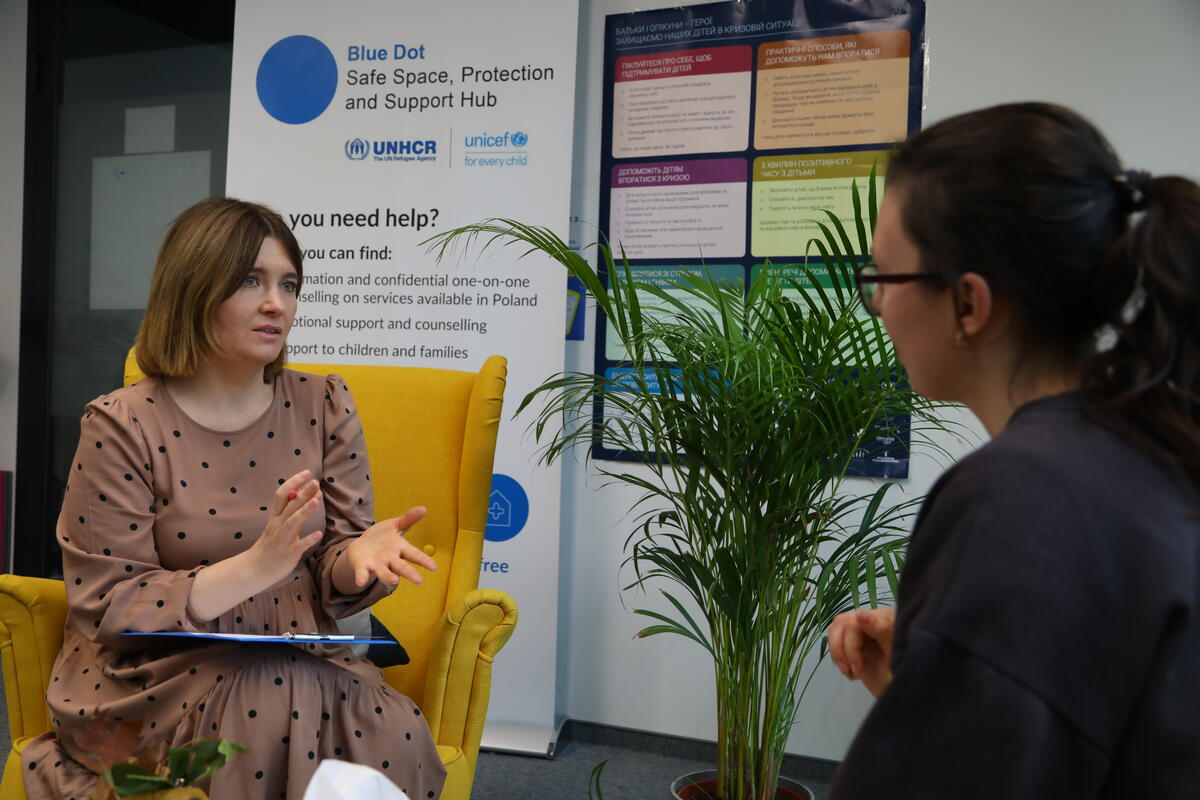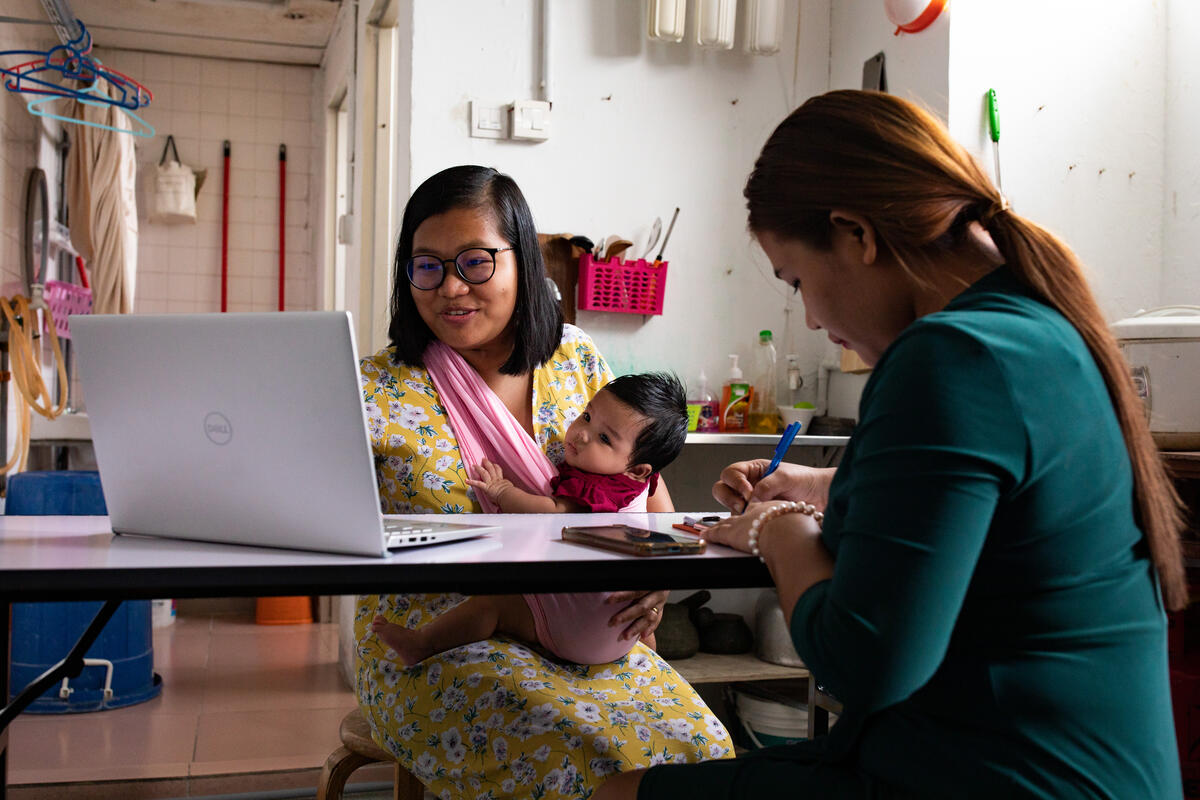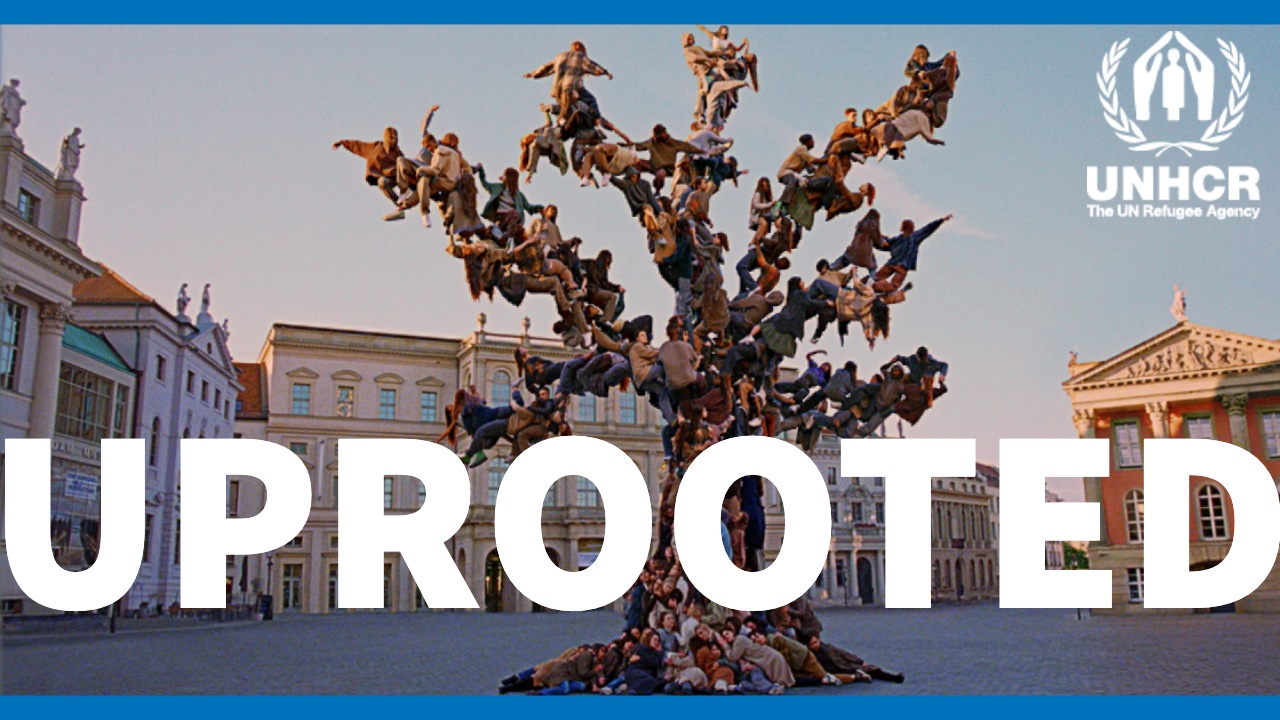Rohingya youth spearhead project to foster mental health
Rohingya youth spearhead project to foster mental health
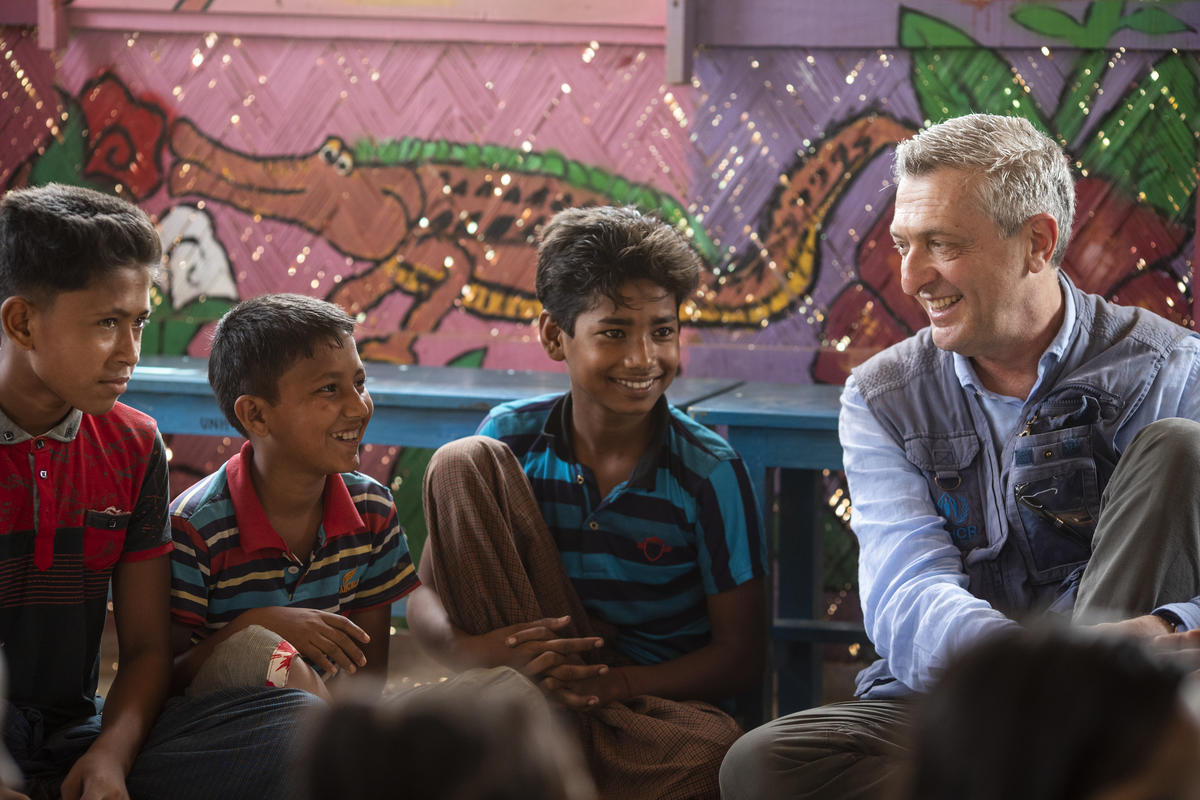
COX’S BAZAR, Bangladesh – The camps have the size and complexity of a city, a city of refugees.
It is a city of 720,000 with problems and challenges peculiar to itself.
UN High Commissioner for Refugees Filippo Grandi sat watching a circle of 18 children, aged from 12 to 17, as they went through a choreographed structure of question-and-response, interspersed with dancing and exercises.
The children are Rohingya refugees, most forced to flee with their families from appalling violence and atrocities committed against their community in Myanmar.
The children are the spearhead of an innovative mental health project designed to help them talk about their worries and sadnesses in this giant camp. It started with just two groups here and now there are 40.
A key innovation is that the discussion leaders are children themselves – Myshara, a girl of 13, and Abdul Sukker, who is 16. Energetically they take the others through the key points – mental illness is not a choice, recovery is; there’s no shame in seeking help; and four other points, complete with stories and illustrations.
“Men and boys here are used to hiding their feelings. It was something like a weakness to ask for help.”
“Men and boys here are used to hiding their feelings,” Abdul said in an interview. “It was something like a weakness to ask for help. But now we’re not reluctant.”
The idea is not to dwell on past horrors and traumas, but to come to terms with daily frustrations and sadness. Still, the past cannot be avoided. Nine months ago, Abdul’s father died. Thanks to these discussions, he says, he can talk about his sense of loss.
“At night I feel him. In my subconscious I feel my Dad is there. He approaches and wants to wake me to make sure I go to school.”
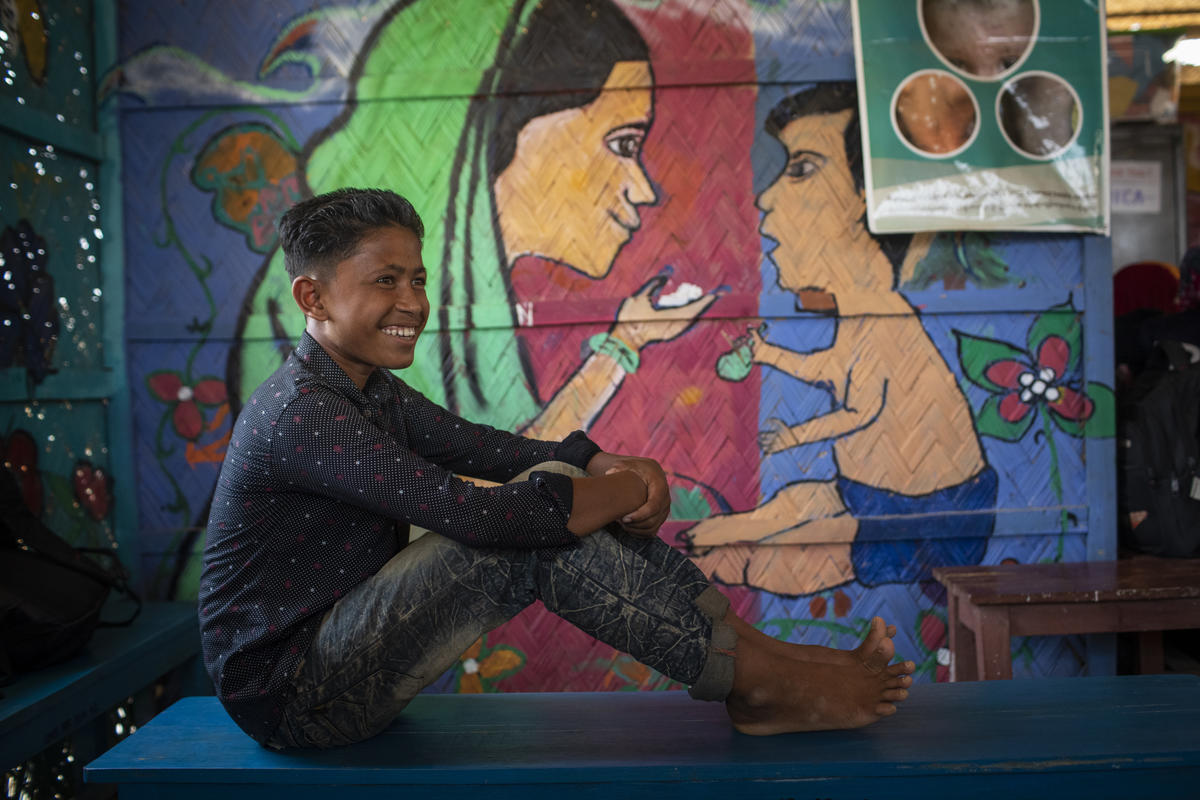
Both have developed leadership qualities. Myshara spoke of her new confidence.
“It’s a great happiness for me to help others,” she said. “This was something new for us and we were a bit afraid, but now we’re happy and spreading the same teaching to the camp. All of this helps us to get out of our dark experience.”
"All of this helps us to get out of our dark experience.”
If these discussion groups bring happiness, there is also frustration, particularly for talented older children. Grandi accompanied Myshara to her home and then to a learning centre. At home he heard her father talk of his determination to see his four daughters educated.
At the school Grandi saw the limits of the educational programs here. Formal education is not allowed and the schools that exist provide no more than first or second grade studies. There is no indication that a system of secondary schools or diplomas will be set up.
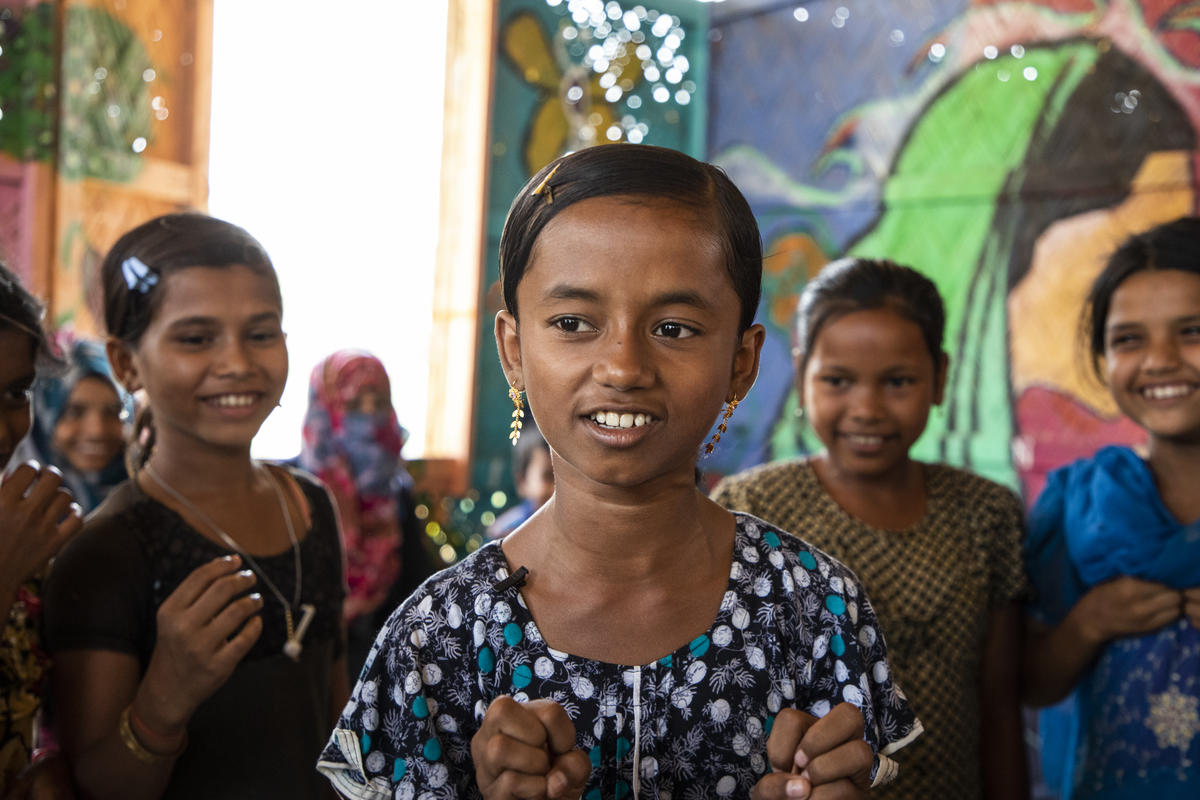
Both Myshara and Abdul complained quietly that the classes don’t challenge them or teach them. And Grandi, recognizing the frustration, made a plea on behalf of children of promise in exile here.
“She’s a real leader,” he said, referring to Myshara. “This refugee girl proves that even in the most deprived, discouraging and distressed situation, if you give someone an opportunity, they can share what they have learned, and prosper and achieve much.”
But the doors of education remain closed for almost all. One UNHCR mental health officer said the danger is that these children will grow into a “lost generation.”
The refugee city has other unusual concerns. Grandi met with Rohingya volunteers working to protect, as much as possible, the residents from the expected devastating effects of the approaching monsoon season. There is also a danger of cyclones.
In Camp 21, 50 refugee volunteers go door-to-door in pairs, one man and one woman, to warn residents living in hillside shelters. One pair, Abdullah and Samuda, work in a sector where 20 makeshift houses were swept down the slope and destroyed last year. The volunteers’ work is frustrating. People have rebuilt on the same spot and don’t want to leave.
“Almost no one agrees,” Samuda said. “They only move when the mud hits them.”
On cue, Rehena Begum, a young mother with two children in one endangered dwelling, told them about the floods that washed her place down the slope, “I was sad when I saw it, but I don’t want to move.”
Rohingya volunteers are working to protect residents from the coming monsoon season, and the danger of cyclones.
In the valley, work is more successful. Teams of Rohingya refugees are building brick and mortar walls in canals designed to take the runoff from the deluge away from the camp. The men are paid a small daily stipend for the work.
There are nine coordinators and one of them is a woman, Gulbahar, responsible for 40 workers. Usually, she said, there are 20 working under her supervision each day.
Gulbahar looks upon the coming monsoon with mixed feelings. There is some danger but, “I enjoy this work, and, at the end of the day, it brings in money for my family.”
On the surface this immense city of refugees is organized and preparing for coming emergencies. But it is a city in a curious limbo, most of its residents unable to work, most of its children unable to study. And it needs the generosity of donors and the industriousness of the refugees to function.
The semblance of stability creates its own problems, Grandi said.
“Rohingya refugees should not be forgotten. We know that other crises take over and the world can forget. It is in all of our interests to give them the opportunity to learn and shape the future for their community.”
That will take international investment in the refugees along with the surrounding communities that welcomed them.


